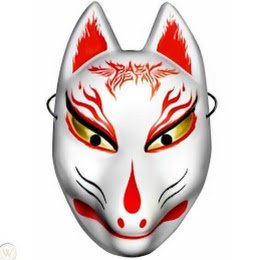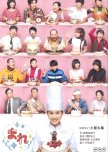Deze recentie kan spoilers bevatten
Could have been a great show about an independent working woman chasing after her dream
First of all, spoilers ahead.
Second: If you watched Mare already and like Yamazaki Kento's character Keita, I advise you to stop reading.
"Mare" was the first Asadora I watched and I like Tsuchiya Tao, so needless to say that it made me fall in love with the "Asadora concept". Which is also why I scored it very highly after my first watch. Now that I've seen a few more Asadoras I decided to rewatch exactly because of these reasons.
Mare's character takes a little time to get used to, but it's basically built upon the stereotypical Japanese "I want to do my utmost best" template, which I don't necessarily dislike. Tsuchiya Tao did, in my opinion, a great and believable job with the character and her expressions and gestures added a lot of humor. The story of becoming a chef/baker/patissier is also nothing new, but thanks to the fact that it's an Asadora we get a much more detailed look at how hard it is to become one, even if it probably wasn't very realistic (the same as most Asadoras). I also really liked most of the side characters, especially the best friend for most of the story, Minori (Kadowaki Mugi), the little brother Ittetsu (Hayama Shono) and the "foster grandparents" played by Tanaka Yuuko and Tanaka Min. Their coolheadedness and dry humor/sarcasm added a lot of enjoyment for me. But let me get into why I decided to write a review and why I wrote the second point of my opening.
Like I said in the headline, it could have been a great drama about a woman who decides to be independent and chase after her dream of becoming a patissier, even though she tells herself that she hates dreams. Unfortunately the emphasis is on "COULD HAVE". Which is when the character Keita enters the picture, who's probably my most disliked character in all the Asadoras I've watched so far. He's boring, he's boorish, he's selfish, he's extremely single-minded and he can't read the atmosphere in a room. The worst part is that he says to Mare, in one of the first weeks when they're still in High School, "it's wrong for you to selfishly ask me to set aside my dream" and then he's actually really happy when the woman he supposedly loves (Mare) gives up the probably one chance of fulfilling her own dream that's directly in front of her after working at it for almost ten years just so she can support him by basically becoming the maid of his grandfather's lacquer shop. Long story short, all he has going for him are his looks and the only traits that could've made the character worse are that he's an alcoholic and cheats on his wife. Don't get me wrong, I like Yamazaki Kento and his acting, but even if he'd be the best actor in the world, there's nothing he could've done differently. In my opinion this character was a hair's breadth away from destroying the story and turning it into another "a Japanese woman should support her husband above everything else" drama for the majority of the second half. Without Keita, "Mare" would've probably been my second favorite Asadora (after Natsuzora and tied with Amachan), but the writer's incomprehensible need for a woman to marry and make babies before she turns 30 (which is the only reason I can see why the story went that way) let it definitely slip a few ranks.
Thankfully everything before she marries (again, why anyone would ever fall in love with a guy like that is still a mystery to me, especially because she had a much better option) and everything after the writer remembered what the story was all about is very enjoyable, but in my eyes "Mare" is one of the best examples of how one support character can almost destroy the story/purpose of a 156 episode drama, regardless of everything else that was good about it.
Edit: After watching a few more episodes again I can't believe this was actually written by a woman because the character Mare is actually the perfect example of the sad stereotype Japanese men have about working women ("Why should we promote a woman when she's going to give up on her career anyways as soon as she marries") and why Japan is last in every statistic by a long shot when it comes to "women in leading business positions".
Second: If you watched Mare already and like Yamazaki Kento's character Keita, I advise you to stop reading.
"Mare" was the first Asadora I watched and I like Tsuchiya Tao, so needless to say that it made me fall in love with the "Asadora concept". Which is also why I scored it very highly after my first watch. Now that I've seen a few more Asadoras I decided to rewatch exactly because of these reasons.
Mare's character takes a little time to get used to, but it's basically built upon the stereotypical Japanese "I want to do my utmost best" template, which I don't necessarily dislike. Tsuchiya Tao did, in my opinion, a great and believable job with the character and her expressions and gestures added a lot of humor. The story of becoming a chef/baker/patissier is also nothing new, but thanks to the fact that it's an Asadora we get a much more detailed look at how hard it is to become one, even if it probably wasn't very realistic (the same as most Asadoras). I also really liked most of the side characters, especially the best friend for most of the story, Minori (Kadowaki Mugi), the little brother Ittetsu (Hayama Shono) and the "foster grandparents" played by Tanaka Yuuko and Tanaka Min. Their coolheadedness and dry humor/sarcasm added a lot of enjoyment for me. But let me get into why I decided to write a review and why I wrote the second point of my opening.
Like I said in the headline, it could have been a great drama about a woman who decides to be independent and chase after her dream of becoming a patissier, even though she tells herself that she hates dreams. Unfortunately the emphasis is on "COULD HAVE". Which is when the character Keita enters the picture, who's probably my most disliked character in all the Asadoras I've watched so far. He's boring, he's boorish, he's selfish, he's extremely single-minded and he can't read the atmosphere in a room. The worst part is that he says to Mare, in one of the first weeks when they're still in High School, "it's wrong for you to selfishly ask me to set aside my dream" and then he's actually really happy when the woman he supposedly loves (Mare) gives up the probably one chance of fulfilling her own dream that's directly in front of her after working at it for almost ten years just so she can support him by basically becoming the maid of his grandfather's lacquer shop. Long story short, all he has going for him are his looks and the only traits that could've made the character worse are that he's an alcoholic and cheats on his wife. Don't get me wrong, I like Yamazaki Kento and his acting, but even if he'd be the best actor in the world, there's nothing he could've done differently. In my opinion this character was a hair's breadth away from destroying the story and turning it into another "a Japanese woman should support her husband above everything else" drama for the majority of the second half. Without Keita, "Mare" would've probably been my second favorite Asadora (after Natsuzora and tied with Amachan), but the writer's incomprehensible need for a woman to marry and make babies before she turns 30 (which is the only reason I can see why the story went that way) let it definitely slip a few ranks.
Thankfully everything before she marries (again, why anyone would ever fall in love with a guy like that is still a mystery to me, especially because she had a much better option) and everything after the writer remembered what the story was all about is very enjoyable, but in my eyes "Mare" is one of the best examples of how one support character can almost destroy the story/purpose of a 156 episode drama, regardless of everything else that was good about it.
Edit: After watching a few more episodes again I can't believe this was actually written by a woman because the character Mare is actually the perfect example of the sad stereotype Japanese men have about working women ("Why should we promote a woman when she's going to give up on her career anyways as soon as she marries") and why Japan is last in every statistic by a long shot when it comes to "women in leading business positions".
Vond je deze recentie nuttig?












